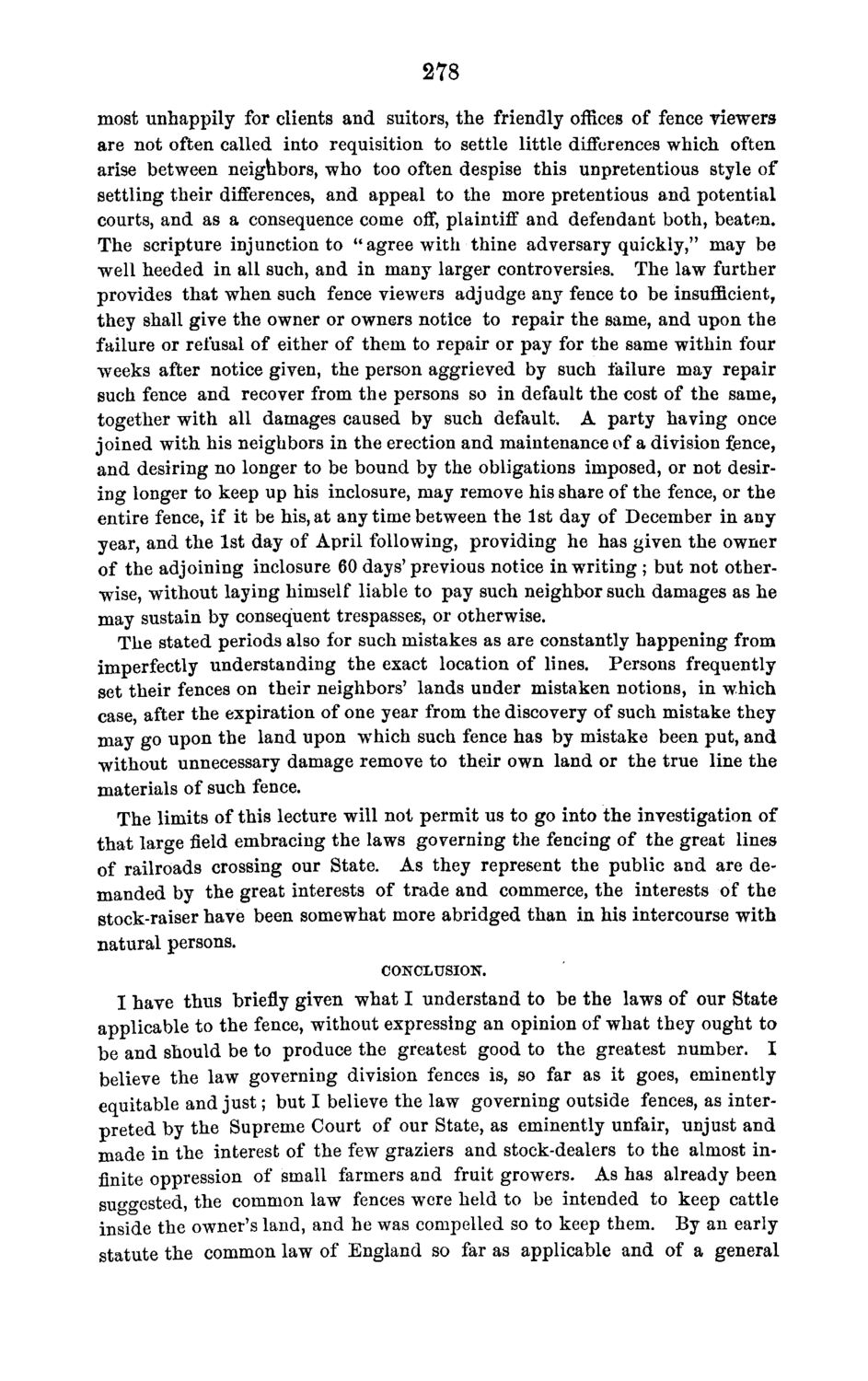| |
| |
Caption: Board of Trustees Minutes - 1870
This is a reduced-resolution page image for fast online browsing.

EXTRACTED TEXT FROM PAGE:
278 most unhappily for clients and suitors, the friendly offices of fence viewers are not often called into requisition to settle little differences which often arise between neighbors, who too often despise this unpretentious style of settling their differences, and appeal to the more pretentious and potential courts, and as a consequence come off, plaintiff and defendant both, beaten. The scripture injunction to "agree with thine adversary quickly," may be well heeded in all such, and in many larger controversies. The law further provides that when such fence viewers adjudge any fence to be insufficient, they shall give the owner or owners notice to repair the same, and upon the failure or refusal of either of them to repair or pay for the same within four weeks after notice given, the person aggrieved by such failure may repair such fence and recover from the persons so in default the cost of the same, together with all damages caused by such default. A party having once joined with his neighbors in the erection and maintenance of a division fence, and desiring no longer to be bound by the obligations imposed, or not desiring longer to keep up his inclosure, may remove his share of the fence, or the entire fence, if it be his, at any time between the 1st day of December in any year, and the 1st day of April following, providing he has given the owner of the adjoining inclosure 60 days' previous notice in writing ; but not otherwise, without laying himself liable to pay such neighbor such damages as he may sustain by consequent trespasses, or otherwise. The stated periods also for such mistakes as are constantly happening from imperfectly understanding the exact location of lines. Persons frequently set their fences on their neighbors' lands under mistaken notions, in which case, after the expiration of one year from the discovery of such mistake they may go upon the land upon wThich such fence has by mistake been put, and without unnecessary damage remove to their own land or the true line the materials of such fence. The limits of this lecture will not permit us to go into the investigation of that large field embracing the laws governing the fencing of the great lines of railroads crossing our State. As they represent the public and are demanded by the great interests of trade and commerce, the interests of the stock-raiser have been somewhat more abridged than in his intercourse with natural persons. CONCLUSION. I have thus briefly given what I understand to be the laws of our State applicable to the fence, without expressing an opinion of what they ought to be and should be to produce the greatest good to the greatest number. I believe the law governing division fences is, so far as it goes, eminently equitable and just; but I believe the law governing outside fences, as interpreted by the Supreme Court of our State, as eminently unfair, unjust and made in the interest of the few graziers and stock-dealers to the almost infinite oppression of small farmers and fruit growers. As has already been suggested, the common law fences were held to be intended to keep cattle inside the owner's land, and he was compelled so to keep them. By an early statute the common law of England so far as applicable and of a general
| |